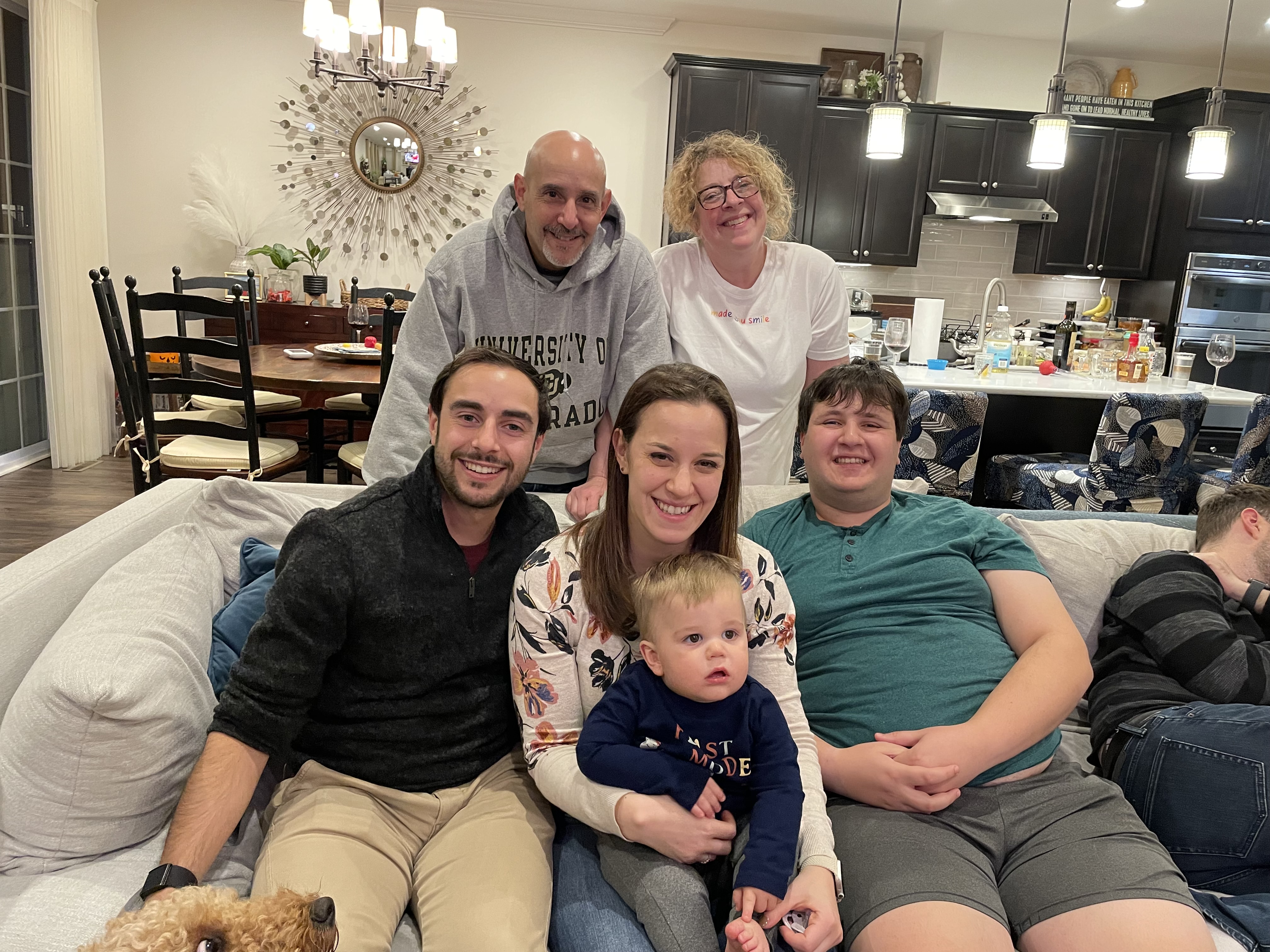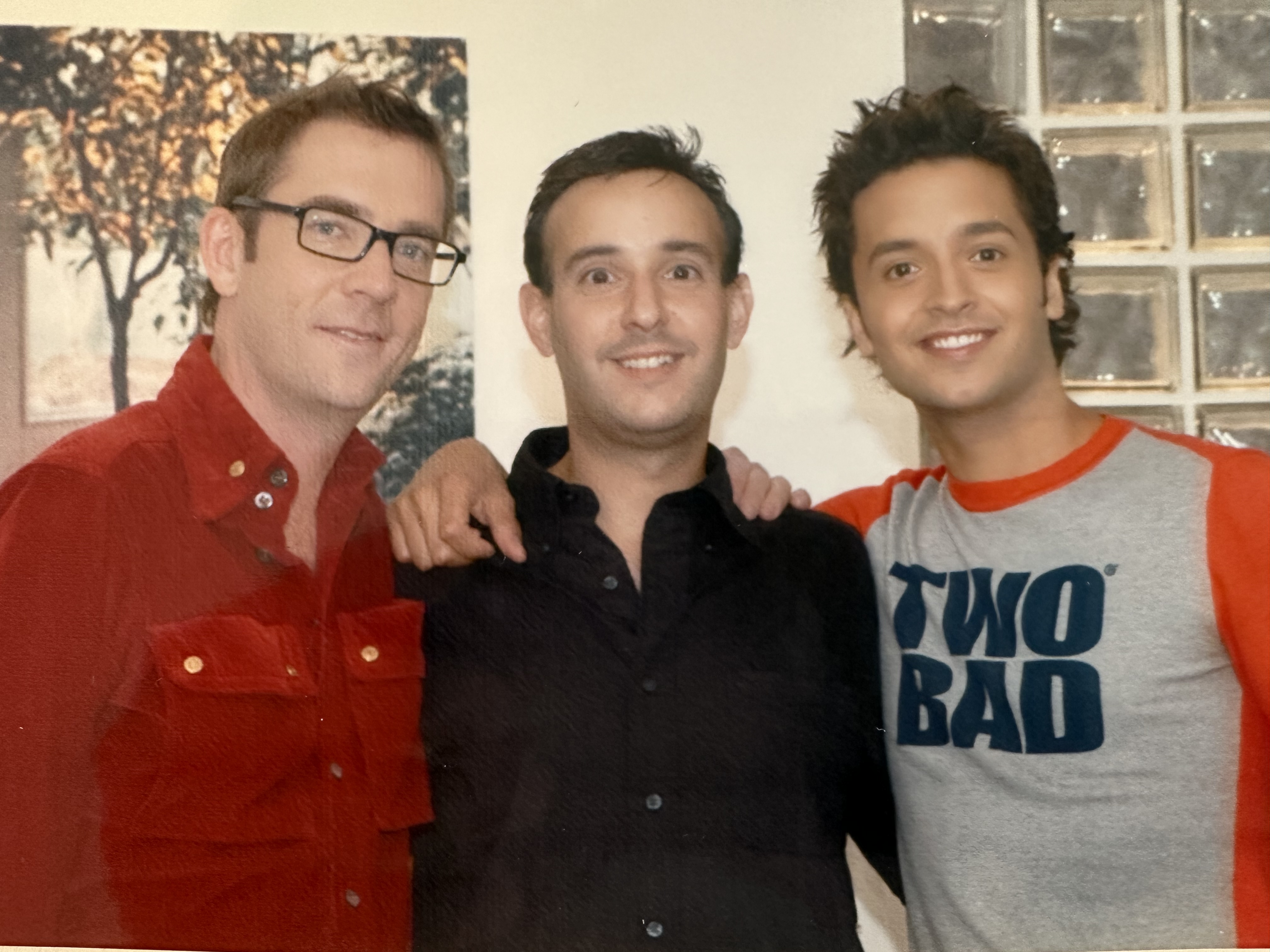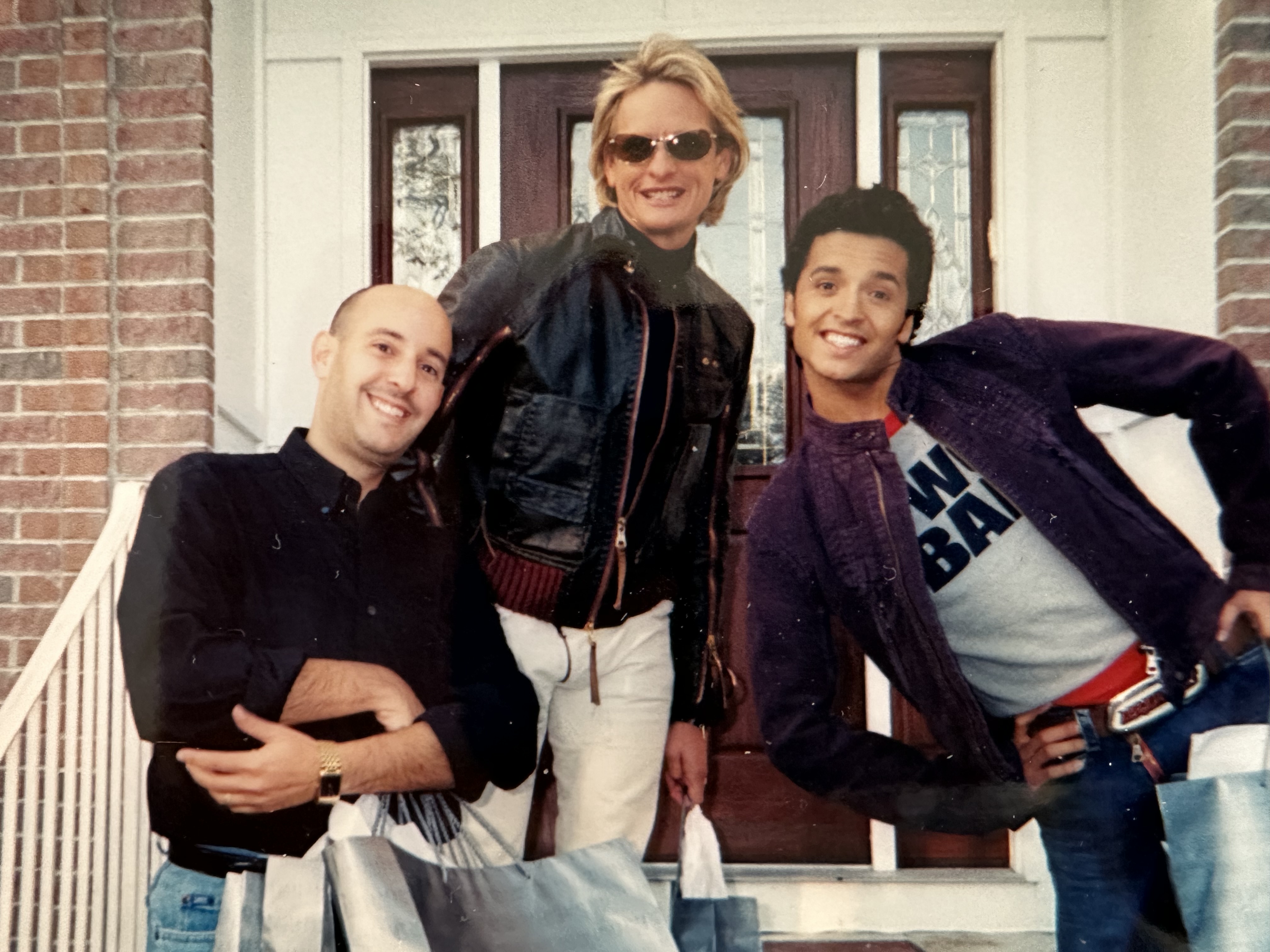Reality check: New Jersey attorney found his fascination in elder law
Articles
Spotlight
View more from News & Articles or Primerus Weekly
By Brian Cox
Certified Elder Law Attorney Richard Miller says some of his cases occasionally resemble something out of reality television.
“When you’re talking about wills and estates and people who are sick and need guardians or are disabled, you’re seeing people at their most raw, who need the most help,” says the New Jersey lawyer who heads up the Elder Law Department at Mandelbaum Barrett PC. “Sometimes you see the good, the bad, and the ugly.”
Miller says people often think some of the cases he encounters could be fiction. He even keeps a pad of paper close at hand to make notes for a book he wants to write one day.
“There’s not a day that goes by that’s boring,” says Miller. “You cannot predict what will happen on any given day. We are the most interesting department in this firm, in my opinion.”
Miller concentrates his practice in elder law, guardianships, planning for individuals with special needs, estate planning, asset protection, estate administration, and probate litigation. He is a frequent lecturer on elder law, government benefit planning, and guardianships before professional, community, and financial groups. It is work he sees as foundational to people’s lives.
Born in 1967 on the Lower East Side of New York, Miller says his family moved to Old Bridge, N.J. when he was in third grade. His father, a social worker with the New York State Commission for the Blind, and his mother, a homemaker, wanted to raise their family in a suburb.

Miller traces his early interest in becoming a lawyer to watching “All the President’s Men” with his grandmother when he was very young. The political drama, starring Robert Redford and Dustin Hoffman as Washington Post reporters Bob Woodward and Carl Bernstein, tells the story of the Watergate scandal that brought down the presidency of Richard Nixon. Miller was mesmerized by the film.
His maternal grandmother, Anne Trepper, was a central figure in his young life. Most days after school, he walked to her garden apartment and spent the afternoon with her. He admired her intellect and sophistication. She had a passion for the arts, theater, and opera — and loved playing Scrabble. She was one of the first women to graduate from Alfred University in New York.
“She was very ahead of her times,” says Miller, who believes his grandmother’s powerful influence and his close relationship with her is likely a strong contributing factor behind his interest in Elder Law.
In high school, Miller got his first taste of politics when he volunteered for U.S. Congressman Chris Smith, who is the longest-serving member of Congress in New Jersey's history. Later, in college at Rutgers, Miller continued to explore his interest in politics by joining Michael Dukakis’s 1988 campaign for president. Miller worked on the advance team for publicity, which he thought was a blast. He once met ABC News anchor Peter Jennings in an elevator and attended the Democratic National Convention in Atlanta, when Dukakis accepted the presidential nomination.
Another time, he remembers having to pick up Olympia Dukakis at 4 a.m. to take her to the airport so she could attend one of her cousin’s debates. The actress had recently won the Academy Award for Best Supporting Actress for her performance in the movie “Moonstruck.”
“I remember sitting in her kitchen while she was getting ready, scared out of my mind, and there on top of this television in her kitchen was the Oscar,” recounts Miller.
But by the end of that campaign season, Miller’s interest in politics was spent. He ultimately found the political world disingenuous and inauthentic. He came away from the experience disenchanted.
His attention had never veered far from the law anyway.
“My mother always said I was going to be a lawyer,” he says. “I was good at speaking and good at writing, so law school seemed a natural choice.”
Miller met his wife, Shana, in a theater appreciation class their freshman year at Rutgers. By their senior year they were engaged. The couple got married the summer between his first and second year at Rutgers Law School and had their first child the following year. It was a dizzying time.
In law school, he considered sports law because it sounded exciting, but he found it didn’t fit his personality. Instead, he says it was a class that he thought “would be the most boring” that caught his curiosity: Trusts and Estates Law.
“It was fascinating to me,” he says. “I connected to the subject matter because it was very personal.”
After law school, Miller joined Harold Leib and Associates, his father-in-law’s law firm in Clifton, N.J., which specialized in taxation law. Harold Leib had been the deputy attorney general of the New Jersey Division of Taxation and had helped write the inheritance tax code.
Miller began working on sales tax cases, but his father-in-law encouraged him to develop an estate planning practice. He pushed Miller to become involved with the New Jersey Society of Certified Public Accountants (NJSCPA) and urged him to begin speaking on estate planning topics at NJSCPA events.
As Miller’s reputation grew, he realized he needed to further distinguish himself from other lawyers in the field and he decided to obtain a national certification in elder law. He started discussing elder law issues before civic and professional groups.
“There were very few certified elder law attorneys in New Jersey at the that time,” says Miller. “I focused on trying to be known as one of the top elder law attorneys in the Northern Jersey area.”
After six years with the firm, Miller felt it was time for a change. He was ready to grow beyond the confines of the family firm and branch out on his own.
“It was probably one of the hardest decisions I’ve ever had to make,” he says. “I learned a lot of what to do, but also what not to do by being involved with that family firm. And the learning of what not to do was a part of what motivated me to change.”
The experience of starting his own firm taught Miller that it takes both an understanding of the business of law and the practice of law to be successful.
“It’s not like you have a safety net anymore,” he says. “You’re raising a family, and you are now solely relying on yourself. There’s no one else to support you.”
Not long after, though, Miller was approached with an offer from a small commercial litigating firm in Parsippany that he decided to take with the understanding that he could continue to develop his elder law practice. He eventually became managing partner. He was with the firm for 10 years before leaving when the firm’s dynamic changed in the wake of two of its partners departing to accept judgeships.
Miller decided to pursue a judicial nomination, which he received, but a confluence of events – including politics, his son starting school in Colorado, and his brother moving to Southern California — resulted in Miller deciding to choose a different course. He fell in love with Colorado while visiting his son and became licensed to practice in the state and began working remotely. He had joined Mandelbaum Barrett PC as a counsel while he sought a judicial appointment and now became partner.
Miller wasn’t initially sure he would be comfortable in a larger firm culture.
“It was a time when most mid- to large-sized law firms didn’t have an elder law department,” says Miller. “Elder Law was really a small firm notion because the idea was elder law attorneys are not profitable. That has since evolved, and we’re proof of it.”
Making use of the firm’s larger platform, infrastructure, and resources, Miller grew Mandelbaum Barrett’s Elder Law and Special Needs department into one of the largest in the state. It now boasts a team of 15 attorneys, paralegals, and support staff.
“I look back and there’s a sense of pride at what I accomplished,” he says. “I’m really proud of what I was able to develop from where I started. I tell people it’s not where you started or what school you attended — it’s what you do with the opportunities that you’re given.”
Miller describes Elder Law as an umbrella that covers a range of areas, including government benefit planning and Medicaid, guardianships, special needs planning, and estate planning. He identifies probate litigation as a source of great growth.
Miller often shares the story of when he was appointed as the attorney for a man in his 80s who was believed to be incapacitated. Adult protective services found the man living in squalor with his disabled adult son. But after meeting the man, who was a retired postal worker with a pension, Miller says it was clear that he was far from incapacitated.
“We talked about everything and really hit it off. He was a huge Yankees fan. I loved him,” recalls Miller.
Both of the man’s children were disabled and incapable of managing his affairs. Miller assumed power of attorney for the man and began the tedious process of organizing his finances. While sorting through garbage bags of documents, Miller was stunned to discover statements from E-Trade going back years.

It turned out the man was a self-educated investor and had amassed nearly $50 million in stocks. Miller was able to use the money to establish the man in an assisted living facility in Florida and to provide a secure future for his children.
Before the man died, Miller was able to arrange with his care manager to take him to the Yankees’ spring training facility in Tampa where he met manager Joe Girardi and received a baseball signed by the team. Miller still has a duplicate ball in his office.
“I love this story because it illustrates all the different parts of Elder Law,” says Miller. “We made a profound impact on his and his children’s lives.”
When Miller says some of his cases could come straight out of reality television, he’s speaking from some experience. He was actually a reality TV celebrity himself for a time 20 years ago.
Miller had struggled with premature balding since law school and for several years wore a toupee. He never felt comfortable wearing it, though, and it became a constant strain. Even his children and wife had never seen him without it.
In 2003, while watching an episode of the new reality show “Queer Eye for the Straight Guy” with his wife, Miller was inspired to step far out of his comfort zone and applied to be on the show, which centered around five gay men giving advice on fashion, grooming, interior design, and food to straight men, transforming them into their more “authentic” selves.
To his surprise, the show’s producers quickly got back to him and selected him as a “make-over” candidate.
The episode featuring Miller, which was titled “Mr. Clean Comes Clean,” ended with him burning his hair piece and embracing his baldness. The episode aired on NBC the night before Thanksgiving and was a tremendous hit. It even went on to win an Emmy.
“It was the craziest year because they used that episode as a promo on Leno and Letterman for the premier,” says Miller. “I was recognized everywhere for a year.”
Normally shy in social situations, Miller says he no longer had to introduce himself at bar functions.
“Every judge knew me, every court clerk knew me, everybody knew me,” he says. “All of a sudden, everybody was coming to me at these events wanting to talk to me.”
The experience gave Miller perspective, he says, on what it means to be vulnerable and the rewards that can come from taking risks.
“Professionally, I was concerned whether people were going to take me seriously after being on the show,” he says. “But it had the opposite effect. It actually had a very positive professional impact.”
That’s the reality of it.

